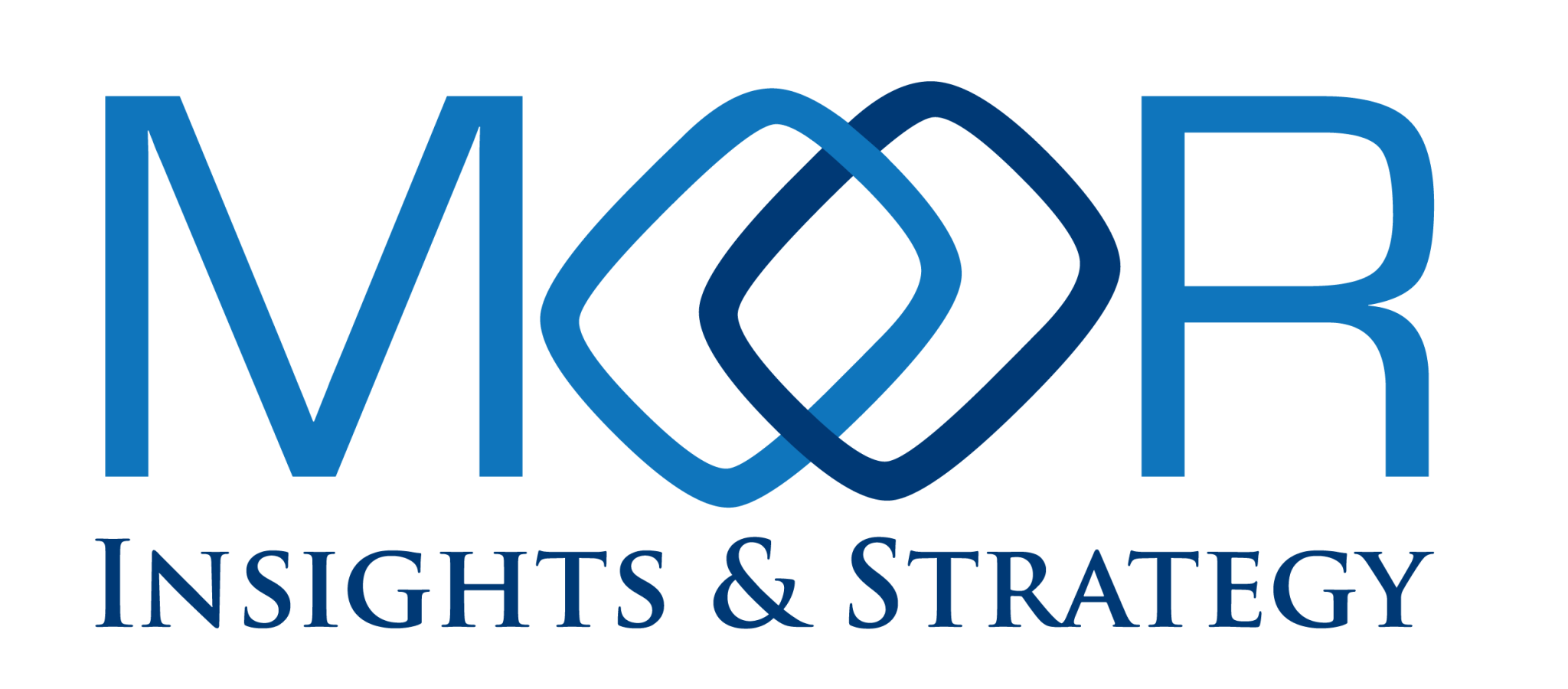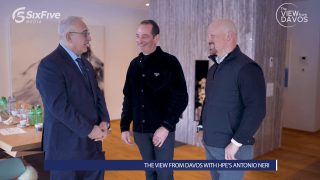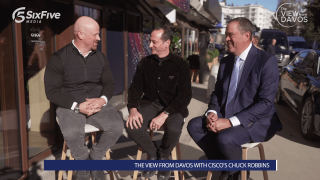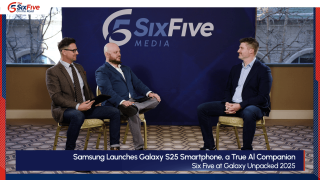IBM Consulting is leading clients through the journey from defining project scope to achieving scalability. Host Daniel Newman and IBM‘s Kelly Chambliss, SVP at IBM Consulting, spoke on the topics below on this episode of Six Five Media On the Road. 👇
- The strategic importance of scope in successful technology consulting
- Case studies on seamless scalability transformations enabled by IBM
- Future trends in technology consulting and scalability solutions
Learn more at IBM and IBM Consulting.
Watch the video below at Six Five Media, and be sure to subscribe to our YouTube channel so you never miss an episode.
Or listen to the audio here:
Disclaimer: Six Five Media On the Road is for information and entertainment purposes only. Over the course of this webcast, we may talk about companies that are publicly traded and we may reference their equity share price, but please do not take anything we say as a recommendation about what you should do with your investment dollars. We are not investment advisors, and we ask that you do not treat us as such.
Transcript:
Daniel Newman: Hey everyone. The Six Five is On the Road. We are here at IBM’s Analyst Forum 2024 at its beautiful new NYC location at One Madison. Excited to be having another great conversation. Going to be talking a little bit about consulting, of course, in the intersection of what’s going on right now with enterprise and AI. This is a big topic. I’m joined by Kelly Chambliss. Kelly, welcome to The Six Five. So happy to have you here.
Kelly Chambliss: Thank you. I’m happy to be here, Daniel.
Daniel Newman: I have to say, it’s been a great couple of days, learned a lot, really enjoyed kind of getting the landscape. So much is going on in consulting and manage. I’ve been asking a lot of questions kind of about how do we put applications into different verticals? How does IBM approach this, right? And as IBM on the technology side is kind of building this really comprehensive stack, really enterprise focused, governance focused to enable companies to make the most out of AI, it really comes down to what you’re doing that enables companies in manufacturing, companies in automotive, companies to really put this to work and make AI work for them. Love to kind of get your take on just the current overall state of the consulting space, how it’s growing, and how you see IBM is uniquely positioned to take advantage of the technology trends that are going on?
Kelly Chambliss: Okay, great. Happy to. I mean, AI is changing every industry, right? And consulting is one of those that is being pretty radically transformed at an unprecedented pace by AI. And there’s really kind of two sets of opportunities for consultancies and specifically IBM consulting. One of them is just being more productive, being able to deliver solutions to clients faster, at a higher quality by using AI tools. The second is, a lot of our clients are seeking to figure out how to use AI to not just be more productive within their own organizations, but how to create new sources of revenue. So, it’s creating opportunities for us to fundamentally transform the way we work, but it’s also creating opportunities for us to help clients figure out how AI can change their industry and how they should get ahead of those trends.
Daniel Newman: Yeah, And I imagine you’ve seen, I mean, the consulting business is always really important to IBM and it’s been a great profit engine for the company for a long, long time. But are you feeling any sort of seismic shifts that have come with the last, I don’t know. I mean, it’s like four decades old, but the last two years seem to be a tipping point or an inflection point, no?
Kelly Chambliss: Yeah, I mentioned that the consulting industry is changing at an unprecedented pace.
Daniel Newman: Yeah.
Kelly Chambliss: We have an institute for business value that does research, looks out ahead around the corner to see what trends are coming. And 85% of clients that we talk to expected consulting firms, systems integration, business consultants to use AI in how they deliver solutions. And I think that 85 is on its way to 100%, right?
Daniel Newman: Customer zero.
Kelly Chambliss: Exactly. And we’re using a lot of AI, exactly, to transform IBM and how we work in IBM, and then sharing that story and those capabilities and those solutions we’re building out with our clients to help them use AI to get value. Now, it is interesting, a lot of people think AI is still a lot of proof of concepts, a lot of pilots, but actually clients are using it now at scale to get real benefit in areas like customer service is a very common one. HR, the HR function within most of our clients is completely changing in terms of employee self-service and agents and being able to leverage AI to provide even better quality.
It’s interesting, when we built out AI to transform and improve our HR function, the NPS or advocacy scores went up. So, it is interesting, most people in the workforce actually want to be able to get the answers themself. Quickly, easily, from wherever they are, right? And so, now we’re taking some of those solutions, you use the term client zero, and taking those to clients so they can get some of the same benefits.
Daniel Newman: It’s kind of classic consumerization, right? People, that’s how they want to do their everyday shopping. They want to talk to hopefully a very performant chatbot, but rather than having to get on the phone and call the airline and figure out how to change, you would rather work with an agent, right? But we are really seeing sort of an acceleration of an agent that is super-utilitis. Historically speaking, a lot of these were more RPA driven or they were kind of predetermined menu, predetermined responses, and they weren’t all that helpful. But now, with what you can do with automation and ultimately with agents, you can really take the best of what RPA was designed to do. And you can now add real deep learning, tuning intelligence, give knowledge, graphs and vector, to truly enable an agent to be, any agents, to be a super force on scale.
That’s so cool. And speaking of all this kind of technology behind it, I mean, IBM kind of sees itself as different than other consulting firms. You talk about the science of consulting. I mean, I think every firm right now that has a foot in enterprises is leaning into AI. They all think they have the best strategy. I mean, you wake up and you think you can’t go to work if you don’t think you’re good at what you do. But how are you different? I mean, what is different about your science of consulting?
Kelly Chambliss: Yeah, good question, Daniel. So, we are the only kind of consultancy at scale inside a technology company, right? And that does provide some benefits, I think, kind of in three areas. One is innovation. You look at IBM research and all the work they’re doing around models and the speed at which things are transitioning now from research into the hands of our consultants to be able to apply those to solving problems at clients. So, innovation is one. Depth of technical expertise. So, we’re building out, you mentioned earlier, IBM Consulting Advantage, which is the platform we’re putting in the hands of all of our consultants, all 160,000 people, to help them be more productive at their jobs. We’re leveraging some talent and expertise from IBM technology to help build that out. And so, we’re getting kind of that deep, deep technical expertise, not just from within consulting, but from across IBM systems and technology as well.
Daniel Newman: And having spent some time with your business, but also with some of your customers, IBM Consulting, I have to say, one of the things that’s always impressed me is there has to be sort of a bit of a demarcation between the consulting and the technology business for you to be good at your jobs, good at the business. Because if you’re always leading with only IBM, IBM may or may not always have the best solutions. And you’ve built great partnerships with the biggest cloud providers, the ISVs, you built deep experiential practices in different CRM platforms and ERP platforms. And I think that’s kind of unique and rare.
And I have to imagine, Kelly, that that’s something you have to watch really closely to make sure that you, because you guys have some great technology, the way Granite’s evolving, the way Watsonx is evolving, where you could always be IBM, but you’re balancing that, right, to try to find that right fit, move customers along, but also kind of have that independence so that IBM Consulting can really say, “Hiring us is just as good as hiring any other firm. We have just as much independence.”
Kelly Chambliss: Yeah, it is interesting because we talk a lot about the importance of ecosystems, strategic partners, and IBM is clearly one of those. And a term you might hear us use quite a bit, that kind of good grounding for all of our consultants is we’re client first, meaning we’re all about helping our clients get value with speed and the greatest value with speed. But we have a point of view. So, when we think of IBM technology, and especially a great example is Red Hat.
Daniel Newman: Yeah.
Kelly Chambliss: We think there’s just tremendous benefits to being able to run your workloads quickly and easily across platforms. And so, we tend to say client first with a point of view. Understand the client problem, and then apply technology from both IBM, but also a broad set of strategic partners like SAP, like Oracle, Salesforce, Adobe, the list goes on. But, so really, I think you get the best of both worlds because we have depth of expertise across that entire portfolio.
Daniel Newman: So, let me ask you a question, having a little bit of fun with this idea, right? You can build agents and you can have super agents, you can have hundreds of agents, you can literally have teams and it’s reasoning and outcome, which is totally different than sort of process. How do you sort of balance this a bit of the technology industry, but also just the entire industry of work juggernaut is, how do you balance human judgment, digital assistance?
Kelly Chambliss: That’s a great question and something we think a lot about, and I can ask questions about it a lot. It’s really rare that I’m working with or talking with a group of our consultants that somebody doesn’t ask me, “Will my job exists in a few years? Whether they’re a developer, a data scientist, a strategist, they’re all trying to figure out what’s the future of work? What’s the future of my expertise and my role? How will that change with the use of AI? And I think a kind of simple way to think of it is, I think the change in terms of leveraging AI is as big as us all leveraging the internet. But it’s different because the internet gave us access to information from around the world, vast amounts of information anywhere in the world. AI is giving us access to vast amounts of knowledge, but that makes us, as consultants, that’s what people buy when they buy consultants.
It’s like knowledge, expertise, know-how, to make the technology work for that company to solve its problem. And so, by putting AI in the hands of our consultants, we’re making them even better at what they do. But to your point, I don’t see AI, some people might dispute this, but I don’t see AI ever being able to reason, have judgment, or have empathy. And so, there’s always a role for humans. But I always say to people that the most effective employees, consultants are going to be the people that figure out how to leverage AI to be even better at, not just more productive, but more insightful. And so, it’s a great opportunity just because there’s so much knowledge at our fingertips now, but it doesn’t take away the need for problem-solving skills and empathy and judgment that humans bring.
Daniel Newman: Yeah. I think probably if there was a dispute, it would be on the reasoning because you’re starting to see some of those engines. I think when it comes to empathy and judgment, I think most of us should agree with what you’re saying. I think it might be able to pretend to have empathy and judgment, but it’s a machine, so it can’t do that. It is really pretty prolific how these agents though are sort of able to take a problem. I talked to Rob Thomas about this a bit, and he was kind of explaining the difference between assistant and agents. And agents can basically be given an outcome that they’re trying to seek, and then they can be sent off to work, help me reduce expenses 5%. They can go off and figure out all the things, bring a report back, and he goes, “Here’s where we think there might be waste in this.” I mean, it’s incredible if these things could do this. I’d like to wrap up a little bit on Consulting Advantage. You teased it out a little bit. You said what it was. You mentioned 160?
Kelly Chambliss: 160,000 people.
Daniel Newman: Yeah. Glad I remembered that. That was somewhere buried in the conversation. But talk a little bit more about this advantage and kind of what new significant capabilities are coming with it, and how does this help IBM’s clients?
Kelly Chambliss: Oh, it absolutely does. So, by putting IBM Consulting Advantage in the hands of 160,000 consultants, they’re all more productive at the jobs that they do. And it’s interesting, we set a goal at the start of the year, Daniel, have half of our consultants, so 80,000 using the platform most days to do the work they do, whether it’s development, data science, could be strategy work, and we far surpassed that goal. And now, many of them would say, “I don’t know what I’d do without it.” Because we built these assistant packs, and you go in and depending on your role, there’s really targeted assistance to help you, whether it’s create presentations, to write design specs, test solutions. And so, there’s tailored assistant packs for different roles.
And what’s really great about it too is we’re able to harness the creativity and innovation of 160,000 people, because as soon as they start using these, they think, “Oh, we need an assistant for this.” And then, they’ll build it out, and then we’ll take that and incorporate it into the solution itself. So, literally advancements happen to IBM Consulting Advantage daily, weekly. So, it keeps people coming back too because they find great value in a lot of the assistants that are there. But they know every time they go into the platform, there’s going to be something new and different that could make them even better at the work they do.
Daniel Newman: Yeah, it’s very interesting. Exciting times, Kelly, to be in the consulting business. I want to thank you so much for taking a little time here to talk to me during this exciting Analyst Forum. It’s been a lot of fun.
Kelly Chambliss: Thank you. Thank you for having me.
Daniel Newman: And thank you all for tuning into The Six Five On the Road. It’s a great week here at IBM. One Madison, this new facility, very impressive. But what’s been more impressive has been the conversations, what I’ve learned, what I’ve seen, and hopefully some of the new announcements that maybe it broke, maybe you haven’t, can’t do it here. Anyway, hit that subscribe button. Join us for all of our other episodes here on The Six Five. We appreciate you being part of our community. Bye-bye.






















































































